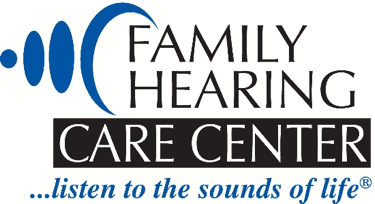
The Power of Disclosure: Communicating Hearing Loss with Compassion and Clarity
Hearing loss is a prevalent yet often underestimated condition that affects millions of individuals worldwide. As a leading audiologist, I have witnessed the transformative impact of effective communication surrounding hearing loss. In this article, we will explore the critical importance of the disclosure method when sharing news of hearing impairment with others. Drawing from the latest advancements in hearing loss prevention, diagnosis, and management, we will delve into the significance of early detection, the role of compassionate communication, and the potential futuristic interventions that hold promise for improving the lives of those with hearing loss.
The Prevalence of Hearing Loss
Hearing loss is a widespread concern, and its prevalence continues to rise due to various factors, including the aging population and increased noise exposure. According to the World Health Organization, approximately 466 million people globally have disabling hearing loss, with estimates projecting that this number will increase to 900 million by 2050. This staggering statistic underscores the urgency of addressing hearing loss comprehensively.
Early Detection: The Cornerstone of Effective Management
Early detection is paramount in managing hearing loss successfully. Recent advancements in diagnostic technology have made it easier to identify hearing issues at an earlier stage. Audiologists now have access to sophisticated tools and procedures that can pinpoint the degree and type of hearing loss accurately. This information is invaluable in tailoring treatment plans and interventions to the individual’s specific needs.
Moreover, early detection allows for proactive steps to protect and preserve the remaining hearing. Hearing protection measures, such as custom earplugs and earmuffs, are becoming increasingly sophisticated, providing optimal defense against noise-induced hearing loss. By educating patients about the importance of these preventive measures, we can reduce the risk of future hearing impairment.
Compassionate Disclosure: Breaking Down Stigmas
When it comes to sharing a hearing loss diagnosis, the manner in which it is disclosed can significantly impact a person’s emotional well-being and their willingness to seek help. As hearing professionals, it is our duty to approach this conversation with empathy, sensitivity, and a deep understanding of the emotional challenges individuals may face.
Recent research in audiology has highlighted the importance of compassionate communication during the disclosure process. A supportive and empathetic approach can help reduce the stigma associated with hearing loss. It is crucial to emphasize that hearing loss is a common and manageable condition, not a personal failing. By fostering an environment of understanding and offering emotional support, we empower individuals to take proactive steps towards improving their hearing health.
The Future of Hearing Interventions
While we have made significant strides in hearing loss prevention, diagnosis, and management, the field continues to evolve. The future holds promise for groundbreaking interventions that could revolutionize how we address hearing impairment.
One exciting area of research involves regenerative medicine and gene therapy. Scientists are exploring ways to regenerate damaged hair cells in the inner ear, potentially restoring hearing in cases of sensorineural hearing loss. While these therapies are still in the experimental stage, they offer hope for the future.
Additionally, wearable technology is advancing rapidly, with hearing aids becoming smaller, more discreet, and more technologically advanced. Smart hearing aids that can adapt to different listening environments and connect seamlessly with other devices are becoming more prevalent, offering individuals with hearing loss a higher quality of life.
In conclusion, the disclosure method when communicating hearing loss is a critical aspect of hearing healthcare that cannot be overlooked. With the prevalence of hearing loss on the rise, early detection remains the cornerstone of effective management. The field of audiology is continually advancing, offering hope for the future through regenerative medicine, gene therapy, and innovative wearable technology.
As hearing professionals, it is our duty to approach the disclosure of hearing loss with compassion, empathy, and sensitivity, helping individuals overcome the emotional barriers associated with this condition. By breaking down stigmas and providing unwavering support, we empower our patients to take control of their hearing health and explore the vast array of treatment options available.
In the years to come, we anticipate even more remarkable developments in the field of audiology, bringing us closer to a world where hearing loss is not only manageable but also potentially reversible. Until then, our commitment to compassionate communication and early detection remains at the forefront of our mission to improve the lives of those with hearing loss. Together, we can create a future where hearing impairment is met with understanding, empathy, and hope.
